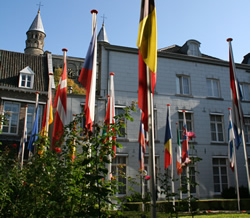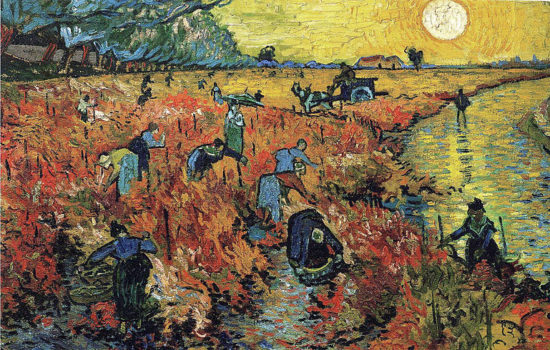We are thrilled to announce the upcoming EIPA’s workshop “Food Regulation in Action: Procedures and Proceedings in EU Food” to be held in Luxembourg 24-25/Sep/2015.
The seminar addresses lawyers, regulatory affairs managers, consultants and other professionals practicing in food regulatory affairs. It is also relevant to officials of national authorities who intervene in the diverse food procedures and who are responsible for the administrative enforcement of the food measures finally taken. Moreover, it is also of interest to members of the judiciary and legal counsels intervening in litigation of food requirements.
Description
Since its refoundation by Regulation (EC) No 178/2002, EU Food Law has developed progressively and become a coherent corpus of norms which, systematically and thoroughly, establishes a number of common objectives and principles for the whole food ambit and imposes specific requirements for certain categories of foodstuffs.
Together with this normative completeness, and aiming at ensuring that food is wholesome and safe, EU Food Law is also characterised for having set up a specific governance architecture and for its procedural complexity. Indeed, specific processes have been established to make sure that the adopted food standards are based on the best scientific advice available (risk assessment procedures). This necessity to rely on scientific opinions affects as well traditional decision-making mechanisms (legislative procedures and procedures for the adoption of delegated and implementing acts), which possess specific peculiarities in the food sector, due to the participation of institutional and non-institutional organs and actors in charge of interest representation. In addition, certain foodstuffs, due to information requirements and safety considerations, are subject to particular notification and stringent pre-market authorisation procedures. And finally, there is the dimension of litigation: many of the adopted food measures can impact significantly on food business operators, who may seek to contest them before the competent jurisdiction.
Learning methodology
A balanced combination of presentations, reference to case studies and discussion sessions. The seminar will follow an interactive method and offer participants a platform for questions and exchange with experts.
Objectives
The purpose of this seminar is to provide participants with a commented overview of the different procedures and proceedings of EU Food Law. The different foreseen sessions will then equip the audience with a chart or road map for each of the procedures, describing their respective various phases and analysing the powers and competences of the different actors which intervene in them (the Commission and other institutions, Comitology committees, EFSA, Scientific committee and panels, etc.). Consequently, by presenting a ‘user’s guide’ for each of these processes, participants will obtain useful professional hints on how to intervene in them and how to potentially influence their outcome.
Full information: access the official web page here)
The program
THURSDAY 24 SEPTEMBER 2015
08.45 Registration of participants
09.00 Welcome and introduction to the seminar
Juan Diego RAMIREZ-CARDENAS DÍAZ & Aleksandra WESOLOWSKA
Part I: Procedures in EU Food Law
I.1 DECISION-MAKING PROCEDURES
09.30 Taxonomy of EFSA’s scientific outputs
The corpus of EU food norms is characterized by its size and diversity. Together with traditional legal instruments (regulations, directives and decisions), legally binding and applicable at large by food business operators, many other instruments exist, of a predominant scientific nature which are elaborated by EFSA and the Commission in the exercise of their respective risk analysis tasks. This session is intended to analyse these instruments, as output of EU food law rule-making and other procedures, focussing on their definition, their potential legal force or not and impact on states authorities and industry.
Citlali PINTADO
10.30 Coffee break
11.00 Negotiating and adopting food legal rules & instruments: legislative procedures and procedures for the adoption of delegated and implementing acts
This session will provide a practical analysis of the various procedures leading to the enactment of EU food rules and requirements, describing their phases and the various actors (EU institutions, pertinent committees, EFSA, etc.) intervening in them. The aim is to study how national administrations and food operators can participate in them, to express their interests and to potentially influence their outcome. After a reference to the ordinary legislative procedure, this session will mainly focus on the adoption of food delegated and implementing acts (difference between of this type acts, features of the new procedures, etc.) illustrating this with a reference to the legal implementation of new Regulation (EU) No 1169/11
Dr Mihalis KRITIKOS
12.30 Lunch
I.2 RISK ASSESMENT AND AUTHORISATION PROCEDURES
14.00 EU Food Law and Science: risk assessment and scientific evaluation procedures
Science plays a key importance in EU Food Law procedures, for scientific opinions impact upon the legal standards adopted and are determinative in pre-market authorisation and notification procedures. This session will analyse both the architecture (EFSA and its scientific structure of committee and panels) and the procedures to obtain reliable and independent scientific advice, and study the value of expert findings on final Food Law decisions, highlighting how they can condition the choices operated by the EU risk manager authorities.
Simone GABBI
15.30 Coffee break
16.00 Industrial considerations and food regulation. Business operators and their involvement in pre-market authorisation and notification procedures
Food business operators and their trade associations liaise with EU food administration, in the context of pre-market authorisation and notification procedures, which aim at ensuring consumer information, boosting industry innovation and maintaining a high level ofsafety. This session will present a commented description of the above procedures, and illustrate to food operators the procedural steps to be complied for the approval of a dossier, in two types of cases: the authorisation of Health Claims and the approval of GMOs.
Aleksandra WESOLOWSKA and Raymond O’ROURKE
17.30 End of the first day
17.45 Cocktail reception
FRIDAY 25 SEPTEMBER 2015
Part I: Procedures in EU Food Law (continued)
I.3 FOOD SAFETY PROCEDURES
09.00 Containing serious food scares. The implication of national authorities in the enforcement of food safety procedures and in the enactment of emergency measures
When incidents related to food pose a potential serious risks to human health and cannot be managed with routine procedures, a general crisis-management plan shall be followed. In this session, it will be explained how national authorities enforce this general plan by drawing their own contingency plans according to Regulation (EC) No 882/2004. Past and recent food scares will provide illustrations on how to outline the plans in practice.
Daniele PISANELLO
10.30 Coffee break
Part II: Proceedings in EU Food Law. Judicial enforcement and litigation on food requirements
II.1 PUBLIC ENFORCEMENT AND LITIGATION
11.00 Prosecuting Member States’ failures to fulfil their EU Food Law obligations. The infringement procedure
If the Commission is of the opinion that a state authority has breached one of its obligations under EU Food Law, it will initiate an infringement procedure against the corresponding Member State. After studying the most common violations of EU Food Law requirements and presenting the most recent infringement cases, this session will provide a practical commentary of the procedure and present recommendations and advice so that the defendant administrations improve their defence strategies in response to Commission investigations.
Juan Diego RAMÍREZ-CÁRDENAS DÍAZ
12.30 Lunch
II.2 PRIVATE ENFORCEMENT AND LITIGATION
14.00 Litigation on EU Food Law before the European Courts (1): challenging the legality of food measures
The various measures and provisions adopted in the food sector (i.e. a Commission decision, a certain scientific opinion, a decision of a registration of a product, etc.) can have important financial and economic implications on food stakeholders (industry, consumers and so on). This opens the question on whether and to what extent these measures could be contested before the Court of Justice of the EU and susceptible to judicial review and on which potential grounds. This is a matter which will be addressed in this session. The most recent case law in the food law area will be scrutinized in response to the above questions.
Peter GJORTLER
15.30 Coffee break
16.00 Litigation on EU Food Law before the European Courts (2): the new legal standing of individuals and economic operators and overview of jurisdictional remedies
The Lisbon Treaty and the most recent case law of the Court of Justice of the EU have resulted in a new reinforced legal standing of individuals and economic operators before the EU jurisdictions and their increased empowerment to contest the legality of EU food law measures. This session will comment on the new locus standi of individuals, providing them with on the various legal remedies at their disposal to attack these measures.
Peter GJORTLER
17.00 Conclusions and evaluation
17.30 End of the seminar
Seminar venue
Building of the Chambre des Métiers
2 Circuit de la Foire Internationale
Room 0.1, ground floor
1347 Luxembourg
Tel: +352 426 230 1














